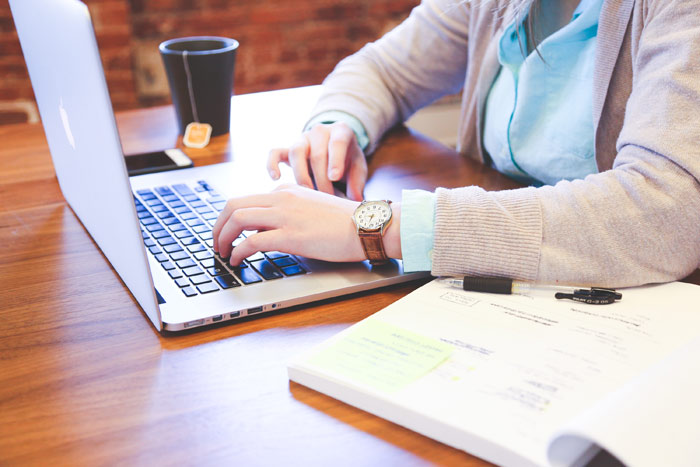Do you want to study faster? Do you want to practice more effectively? Like most students, you have very limited time to work on the material, so you will agree that it would be nice to learn how to take the most of this time.

Oddly enough, the speed of studying is not the only important factor in this respect. The processes of memorizing, storing, and transmitting information play a huge role. A good student simply has to be able to remember, reproduce, and apply all the obtained information in a fairly accurate manner.
We’d like to share with you a few tricks to start learning better.
Remove all distractions
If there are distractions (TV, a guitar, a game console – in short, everything that catches your eye), you will most certainly be distracted. The trick for those who are often distracted is to create an external environment that maximizes learning efficiency. If you need to move the table to another place, move it! Do you lack the willpower to resist the temptation to watch TV? Cover it with something or move it to another room!
Plan your activities
If you consciously postpone the most difficult tasks for later, you are well aware that you are wasting your time. Begin by making the entire list of learning activities for a week.
This simple trick, which does not seem to look especially useful at first glance, will help you to rid your head of unnecessary trash in the form of the list of tasks. In addition, you will be able to visually assess the entire amount of work. Do not forget to indicate the dates of completion!
Practice group work with other students
Group work is a very useful and productive activity for any student. This effectiveness is derived from the fact that the process of checking the material becomes more dynamic and attractive. There is an opportunity to ask questions, discuss complex issues in a team, and formulate the answers more correctly.
Studying alone, you increase the likelihood of not paying attention to your weaknesses. Another negative point is the monotony of the process of independent study. If you want to avoid this, classes within a group are what you need. Change the format of the study, and perhaps you will better remember the material.
Exercise
 According to the Journal of Pediatrics, exercising helps not only maintain better physical shape but also affect the learning process. People who regularly exercise have better academic performance than those who prefer passive rest to physical exercises.
According to the Journal of Pediatrics, exercising helps not only maintain better physical shape but also affect the learning process. People who regularly exercise have better academic performance than those who prefer passive rest to physical exercises.
Take regular breaks
It would be a wrong tactic to get isolated from the outside world with an iron curtain and only study all days long! Regular breaks are mandatory. After all, if you regularly give your brain some time to rest, the effectiveness of perceiving the material will increase significantly.
You can work with the textbook for two hours and then have a break to watch one episode of Friends. This approach gives rest to the prefrontal cortex of the brain and allows you not to stumble on difficult tasks.
Train your memory
First of all, you should develop a better concentration, try to avoid swotting up the night before the exam and structure your educational activity. Only then you can look for the techniques that can significantly improve the effectiveness of training. We advise you to read some tips for improving memory – they help to expand your ability to remember and store new information.
Continue to learn new things
The surest way to become more effective is to simply continue to learn. If you are learning a new language, it’s important to practice, otherwise, you will lose the results you have been working on for so long. Our memory is arranged in such a way that it erases the contents we do not use and replaces it with other information.
Learn in several ways
Try to get new information in more than one way. Instead of just listening to a podcast, try to reproduce its contents verbally, present or act it out. Jot down, take notes, make drawings, diagrams or mental maps. Only in this way you will be able to firmly fix the information in your memory.
Use old knowledge to obtain new skills
Another great way is to link the new information with what is already well known. For example, if you are studying Romeo and Juliet, you can link what you learn about this play with what you already know about Shakespeare or the historical period in which the author lived and worked, etc.
Peep instead of the painful attempts to remember
Of course, learning is not an ideal process. Sometimes we forget the details that we seem to have already learned. Researchers recommend: if you cannot remember something at once, it is better to just peep into the notes for the answer and keep talking.
A study showed that the more time you spend trying to memorize things, the more likely you are to still forget them later. Why? The memory of this mistake will come to your mind rather than the right answer.
Practice taking tests
 It is better to use tests to remember the educational content, even though they are not able to cover the material completely. Researchers have noticed that the students who take regular tests show better results in the long run than those who simply spend more time studying the material.
It is better to use tests to remember the educational content, even though they are not able to cover the material completely. Researchers have noticed that the students who take regular tests show better results in the long run than those who simply spend more time studying the material.
Forget about the multitasking mode
Recent research shows that in fact, multitasking can make learning less effective. How can you avoid the dangers that multitasking presents? It’s very simple: first, focus on a specific task and continue working on it for a certain period of time. Go to the next one only after you have completed it. For example, if you need to perform two tasks at the same time, you might ask yourself: “Is it really possible to write my paper and prepare for an exam simultaneously?”. You can do it if you plan wisely.
Divide each of them into subtasks and list the most important of them first, while noting the less important (or those you already know well) ones at the end. Use it as a check-list for studying. The most important thing here is setting priorities. There might be topics you already know well for the exam, while there are topics you’ll need some more time for.
Conduct lectures
Although listening to lectures is one of the worst ways to master the material, lecturing on your topic (as a teacher) is among the most effective ones.
Write articles
If you have a blog or a web page, you can compile articles on your topic.
Create a video tutorial
Upload learning videos on Youtube. This is a very effective method since you prepare the lecture material that will be available not only to a narrow circle of lecture listeners but to a potentially global audience. At the same time, you can earn extra money!
Discuss the material with friends
 One of the simplest and most accessible techniques is to communicate with people from your social surroundings. At any suitable moment, you can touch upon the topic of your interest, discuss and communicate with your friends all the knowledge you have about this subject. The more you discuss this with a large number of people, the more likely you are to remember this material in the future. In addition, there are hundreds of ways to conduct such discussions online, taking part in forums or using social networks.
One of the simplest and most accessible techniques is to communicate with people from your social surroundings. At any suitable moment, you can touch upon the topic of your interest, discuss and communicate with your friends all the knowledge you have about this subject. The more you discuss this with a large number of people, the more likely you are to remember this material in the future. In addition, there are hundreds of ways to conduct such discussions online, taking part in forums or using social networks.











